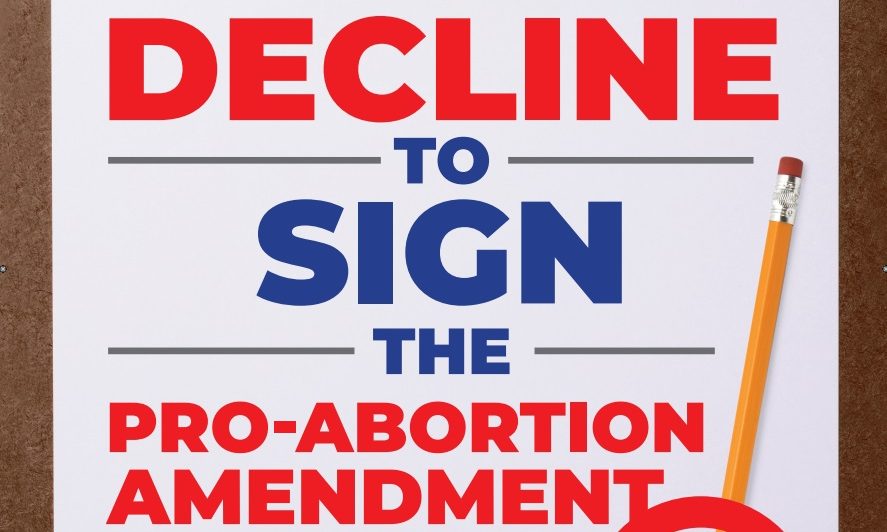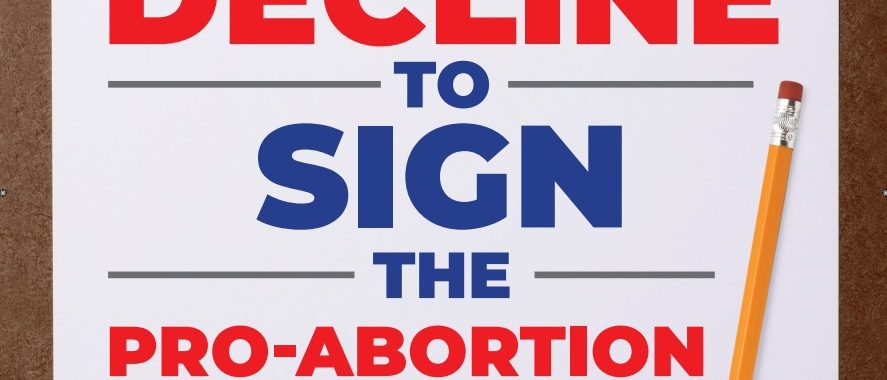Here’s A Brief Overview of Why the Arkansas Abortion Amendment Petitions Were Disqualified

On Wednesday the Arkansas Secretary of State’s office disqualified all of the petitions for the Arkansas Abortion Amendment. The disqualification means the petition signatures cannot be used to place the abortion amendment on the November ballot.
In a letter on Wednesday, the Secretary of State indicated his office rejected the petitions for failing to comply with a state law that former Arkansas Governor Mike Beebe signed in April of 2013.
The letter noted that the sponsors did not file a statement identifying the paid canvassers who collected signatures for the abortion measure, as required by state law.
The letter also indicated the sponsors failed to file a signed statement verifying that each paid canvasser was provided a copy of the most recent edition of the Secretary of State’s initiative and referenda handbook and given an explanation of Arkansas’ legal requirements for obtaining petition signatures.
In 2013 the Arkansas Legislature passed Act 1413 by former Sen. Keith Ingram (D – West Memphis) and former Rep. John Vines (D – Hot Springs) amending state laws concerning ballot initiatives and paid petition canvassers.
As the Secretary of State’s letter notes, Act 1413 requires a ballot initiative’s sponsor to list any paid canvassers employed in collecting signatures, and it requires them to file a statement confirming that each paid canvassers was given a copy of the state’s initiative and referenda handbook as well as an explanation of relevant state laws before he or she solicited petition signatures.
Act 1413 of 2013 passed with overwhelming support in the Arkansas House and Arkansas Senate. The law was challenged in court, but the Arkansas Supreme Court upheld it in 2015. Act 1413 has been on the books ever since.
This is the first time Family Council is aware of that a ballot initiative was disqualified because its sponsors failed to properly comply with Act 1413 of 2013.
While the abortion measure has been disqualified for failing to comply with state law, legal experts have pointed out the Arkansas Abortion Amendment would prevent the State of Arkansas from restricting abortion during the first five months of pregnancy — which is more extreme than Roe v. Wade — and would allow thousands of elective abortions on healthy women and unborn children every year.
The measure also contains various exceptions that would permit abortion on demand through all nine months of pregnancy in many cases.
The amendment does not contain any medical licensing or health and safety standards for abortion, and it does not require abortions to be performed by a physician or in a licensed medical facility.
It also nullifies all state laws that conflict with the amendment, jeopardizing basic abortion regulations — like parental-consent and informed-consent requirements that both sides of the aisle have supported in the past.
On Wednesday Arkansans for Limited Government — the group sponsoring the abortion amendment — posted on X that it had received the Secretary of State’s letter and said, “We will send out a statement when we have decided on a path forward.”
Articles appearing on this website are written with the aid of Family Council’s researchers and writers.




